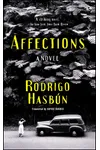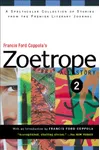Picture a Bolivian storyteller who weaves history, family, and revolution into spellbinding tales—meet Rodrigo Hasbún! Born in Cochabamba, Bolivia, in 1981, this literary gem now calls Houston, Texas, home. His novel Affections has captivated readers worldwide, earning an English PEN Award and translations in 12 languages. Hasbún’s knack for blending intimate human stories with grand historical moments makes him a standout in Latin American literature.
With accolades like being named one of Granta’s Best Young Spanish-Language Novelists and a spot on the Bogotá39 list, Hasbún’s work resonates across cultures. Ready to dive into his world of historical fiction and emotional depth? Let’s explore the life and legacy of this Bolivian maestro!
The Making of Rodrigo Hasbún
Rodrigo Hasbún grew up in Cochabamba, a vibrant Bolivian city that shaped his early worldview. Of Bolivian and Palestinian descent, he was drawn to storytelling from a young age, inspired by Latin America’s rich literary tradition. After studying journalism in Bolivia, Hasbún’s wanderlust took him to Santiago, Chile, and Barcelona for postgraduate studies. These global experiences honed his perspective, infusing his writing with themes of displacement and identity.
His career kicked off with the 2006 short story collection Cinco, which caught the eye of the literary world. By 2007, the Hay Festival named him one of the Bogotá39, spotlighting him as a rising Latin American star under 39. This early recognition set the stage for Hasbún’s unique voice, blending personal diaries and historical narratives.
Rodrigo Hasbún’s Unforgettable Stories
Hasbún’s bibliography is a treasure trove of emotional and historical depth. His breakout novel, Affections (2015), is a haunting historical fiction inspired by the real-life Ertl family, German exiles in Bolivia after World War II. The story follows patriarch Hans, a former Nazi propagandist, and his daughters, particularly Monika, who becomes a Marxist guerrilla known as 'Che Guevara’s Avenger.' Its polyphonic narrative and concise 130 pages pack a punch, exploring family breakdown against Bolivia’s turbulent 1950s and 1960s.
Another gem, El lugar del cuerpo (2011), delves into personal and cultural identity, while his short story collections like Los días más felices and Cuatro showcase his experimental style. Hasbún’s writing is marked by precise prose, shifting narrators, and a focus on intimate moments—like a first cigarette or a fleeting romance—set against political upheaval. His stories have appeared in Granta, McSweeney’s, and Zoetrope: All-Story, with two adapted into films.
Hasbún’s doctoral work on Latin American writers’ diaries reflects his love for introspective storytelling. He’s kept his own diary for over a decade, a practice that likely fuels the raw authenticity in his characters’ inner lives.
Why Rodrigo Hasbún Matters
Rodrigo Hasbún’s impact lies in his ability to bridge personal and political narratives, making Bolivia’s history accessible to a global audience. His focus on displacement and exile resonates with readers navigating their own cultural identities. By centering Latin American voices, he’s enriched historical fiction, earning praise from figures like Jonathan Safran Foer, who called him 'a great writer.'
In Houston, Hasbún has fostered a Spanish-language literary community, leading workshops at Writespace to nurture new voices. His work challenges readers to see history through the lens of human connection, leaving a lasting mark on contemporary literature.
- Born: 1981, Cochabamba, Bolivia
- Key Works: Affections, El lugar del cuerpo, Cinco
- Awards: English PEN Award, Bogotá39, Granta’s Best Young Spanish-Language Novelist
- Fun Fact: Two of his short stories became films, with Hasbún co-writing the screenplays!
Snag Affections and dive into Rodrigo Hasbún’s world of historical fiction, where family ties and revolutions collide!


